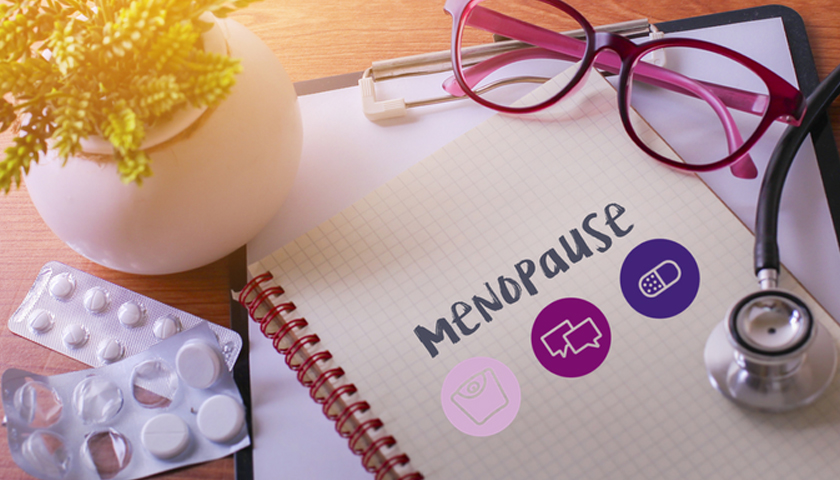Almost two thirds of women who have had menopause symptoms said this impacted them at work, and that more workplace support is needed, new research by Opinium reveals.
Vodafone is making a global commitment to support its employees during the menopause, with an announcement that coincided with International Women’s Day last month. The new commitment forms part of the company’s broader strategy of supporting all employees through every life stage to create a culture of inclusion.
Vodafone today published new independent research conducted by Opinium. Based on a survey of 5,012 people in five countries who had experienced menopause while at work, Opinium found that:
- Nearly two-thirds of women (62%) who experienced menopause symptoms said that this impacted them at work, rising to four in five (79%) for 18-44 year olds.
- A third (33%) of those who had symptoms said they hid this at work, and 50% felt there is stigma around talking about the menopause.
- 43% of women in the UK who experienced menopause symptoms said they have felt too embarrassed to ask for support in the workplace, rising to 63% of women aged 18-44 in the UK.
- Two-thirds (64%) of women in the UK agree there should be more workplace support for women going through menopause.
Vodafone estimates that around 15% of Vodafone’s 100,000 employees will be experiencing the menopause at the moment. To ensure that all Vodafone employees feel comfortable seeking support, Vodafone’s global commitment will introduce support and assistance as well as training and awareness.
This will involve rolling out a training and awareness programme to all employees globally, including a toolkit focused on raising understanding of the menopause and providing guidance on how to support employees, colleagues and family members. This is in addition to existing policies enabling employees to take leave for sickness and medical treatment, opt for flexible working and access support and care through Vodafone’s Employee Assistance programme.

Clare Corkish, HR Director, Vodafone UK, said: “Vodafone is committed to supporting employees through every life stage. We recognise the significant impact that the menopause can have on women and understand how important it is that they feel fully supported in the workplace.
“We hope our new commitment and awareness training will create an environment where women feel encouraged to seek the support they need and are comfortable to talk openly about what they are going through.”
Leanne Wood, Chief Human Resources Officer, Vodafone, said: “Vodafone’s global commitment on menopause underscores our drive for a more inclusive culture and our desire for women to see Vodafone as the place to be for their career through all stages of their life.
“With menopause impacting women for a significant period of their working life, it’s important to us that our environment supports and normalises these life stages by openly talking about and supporting menopause in the workplace.”

Vodafone’s global programmes to increase diversity and inclusion
Diversity and inclusion are integral to Vodafone’s purpose, reinforcing the company’s ambition to be a company whose global workforce reflects the customers we serve and the broader societies within which we operate.
Vodafone’s goal for women to hold 40% of management and leadership roles by 2030 is already reflected at Board level, demonstrating Vodafone’s commitment towards this ambition. Globally, women currently hold over 31% of Vodafone’s management and leadership roles.
To meet our ambition to be recognised as the world’s best employer for women by 2025, Vodafone has developed and introduced a series of pioneering global programmes. These include progressive flexible working policies; maternity and parental leave that supports families to share caring responsibilities in the home; ReConnect to attract talented women back to the workplace; and a Domestic Violence and Abuse policy.
In March 2015, Vodafone pioneered a global maternity policy, offering women across Vodafone’s markets and operations a minimum of 16 weeks fully paid maternity leave and a 30-hour week at full pay for the first six months after their return to work.
Vodafone launched the ReConnect programme in 2017 to attract talented women who have left the workplace for several years – often to raise a family – who want to return to work but are struggling to make the professional connections needed or refresh the skills required.
In 2019, Vodafone supported families with a new global parental leave policy offering 16 weeks fully paid leave to all employees, giving every parent the opportunity to have more time with children new to their family. Vodafone employees can phase their return from parental leave by working the equivalent of a 30-hour week at full pay for a further six months. Vodafone’s parental leave will be available to all non-birthing parents – regardless of their gender, sexual orientation or length of service – by the end of March 2021.
In 2019, Vodafone launched the first global domestic Violence and Abuse policy, setting out a comprehensive range of workplace supports, security and other measures for employees at risk of, experiencing, and recovering from, domestic violence and abuse. Vodafone also made publicly available a toolkit on domestic violence and abuse at work, enabling line managers and colleagues to recognise, respond and support affected employees.


